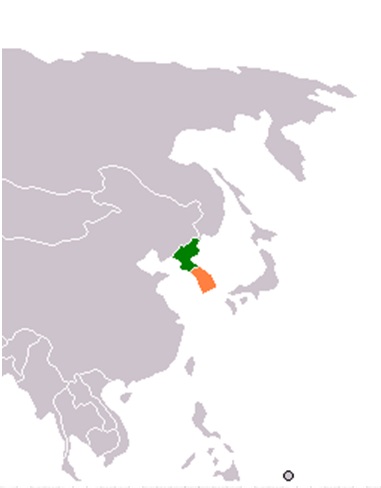Nuclear Weapons 223 - The Defense of South Korea Against North Korea
I have often written about North Korea and its nuclear program. North Korea is thought to have a few nuclear bombs and it often threatens to attack South Korea and the United States over perceived threats. South Korea does not have nuclear weapons and relies on the nuclear arsenal of the United States, the conventional forces of the US and other allied nations and the U.S. Patriot missile defense system in S.K. to protect it from hostiles nations including North Korea which has nuclear weapons. Recently, Donald Trump, the candidate for U.S. President has mentioned that it might be a good idea for South Korea to develop its own nuclear weapons for its own defense.
In the last year, N. K. has demonstrated a number of advancements in its military capabilities. N.K. has
· Launched a satellite with its big Unha rocket.
· Shown a second generation international continental ballistic missile.
· Presented images of what it says is a miniaturized nuclear warhead that could be fitted to a ballistic missile.
· Tested a N.K. air defense missile that appears to be based on the design of the Russia S-300 missile.
· Flight tested the Musudan intermediate range ballistic missile.
· Tested an underwater solid propellant sea-launched ballistic missile which appears to be based on the design of the Soviet SSN 6.
In response to the growing threat of N.K. missile capability, the U.S. and S.K. have announced plans to build an additional THAAD missile defense system in 2018. The U.S. and S.K. are conducting a series of joint training exercises to demonstrate readiness to repel any N.K. attack. Two weeks ago, the U.S. flew three different types of USAF strategic bombers in what was called a "integrated bomber deterrent operation in the Indo-Asian-Pacific region. The B-1B Lancer, the B-2 Spirit and the B-52 Stratofortress all flew in the exercise.
N.K. got very upset with these U.S. and S.K. actions and threatened to preemptively start a nuclear war if they felt that there was any threat of an actual invasion of N.K. by the U.S. and S.K. The N.K. foreign minister said that the "U.S. never ending nuclear blackmail will make American pay a terrifying price."
China also expressed disapproval of the U.S. and S.K. actions. China said that in addition to being able to deter N.K. missile attacks against S.K., the new THAAD missile defense system that was being planned could also be used against China in any conflict in the South China Sea. China even suggested that U.S. actions had been the cause of the recent N.K. missile tests. The Chinese U.N. Ambassador has requested that the U.S. "de-escalate the situation" by refraining from provoking N.K.
It would be unwise for the U.S. to withdraw its protection from S.K. A desperate N.K. might decide to invade S.K. at any time and could conceivably use nuclear weapons. U.S. military planner have concluded that N.K. is on the way to developing the capability to hit the U.S. mainland with nuclear weapons. It would be best for the U.S. to stay involved with S.K. in opposing the militarism of N.K. With U.S. forces on the Korean Peninsula and U.S. missile defense systems located in S.K., any aggressive actions by N.K. could be quickly and decisively dealt with.
North (Green) and South Korea (Orange):
